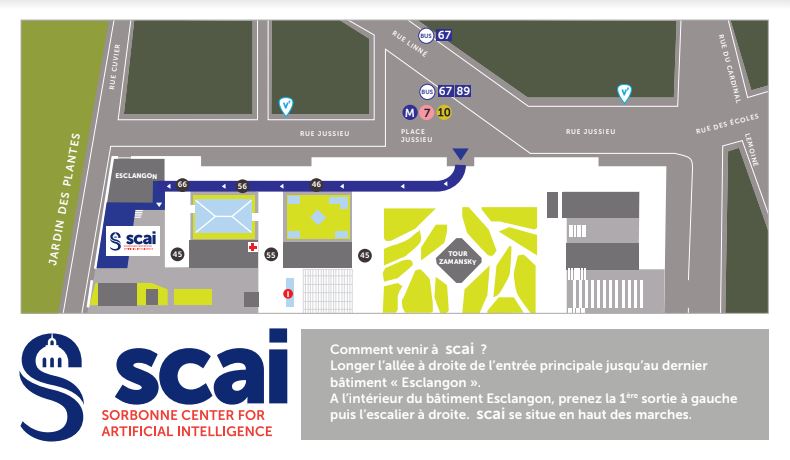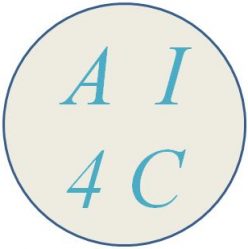List of internships at Sorbonne Université IPSL-SCAI available here: https://drive.google.com/drive/folders/1KUWYC16xPfn7yNy8POK5rLh8umeSPBO_
Auteur/autrice : Dominique Béréziat
AI4Climate seminar: Machine Learning for Climate Change and Environmental Sustainability – Claire Monteleoni – 6th of February 11:00CET
The seminar is on February the 6th, at 11:00 (CET) remotely and in person. The in-person meeting will be held in the SCAI conference room (map at the end of the post).
If you like to attend online, the link for the zoom is here: https://zoom.us/j/98108885974
Abstract:
Despite the scientific consensus on climate change, drastic uncertainties remain. Crucial questions about regional climate trends, changes in extreme events, such as heat waves and mega-storms, and understanding how climate varied in the distant past, must be answered in order to improve predictions, assess impacts and vulnerability, and inform mitigation and sustainable adaptation strategies. Machine learning can help answer such questions and shed light on climate change. I will give an overview of our climate informatics research, focusing on challenges in learning from spatiotemporal data, along with semi- and unsupervised deep learning approaches to studying rare and extreme events, and precipitation and temperature downscaling.
Bio:
Claire Monteleoni is a Choose France Chair in AI and Directrice de Recherche at INRIA Paris, an Associate Professor in the Department of Computer Science at the University of Colorado Boulder, and the founding Editor in Chief of Environmental Data Science, a Cambridge University Press journal, launched in December 2020. She joined INRIA in 2023 and has previously held positions at University of Paris-Saclay, CNRS, George Washington University, and Columbia University. She completed her PhD and Masters in Computer Science at MIT and was a postdoc at UC San Diego. She holds a Bachelor’s in Earth and Planetary Sciences from Harvard. Her research on machine learning for the study of climate change helped launch the interdisciplinary field of Climate Informatics. She co-founded the International Conference on Climate Informatics, which turns 12 years old in 2023, and has attracted climate scientists and data scientists from over 20 countries and 30 U.S. states. She gave an invited tutorial: Climate Change: Challenges for Machine Learning, at NeurIPS 2014. She currently serves on the NSF Advisory Committee for Environmental Research and Education.

Prévision d’ensemble par apprentissage séquentiel en météorologie, et méta-modélisation en pollution urbaine – Vivien Mallet 20 Septembre 2019 – Slides
Slides are available here.
